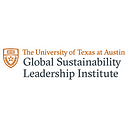How the LIFT Program Helped an Aviation Veteran Chart a New Path
By: Dana Huston-Chen and Joli Cardenas
Dana: Can you tell me a little bit about yourself and your journey to this point?
Joli: After high school, I served in the U.S. Naval Aviation and was stationed in Rota, Spain. Following a four-year enlistment and exploring Europe and the Middle East, I went back to school and obtained a B.S. in Environmental Management. Ten to fifteen years ago, environmental science was still a new field and jobs were difficult to find, so I put environmental management on hold and worked as a civilian for the government in Operations. While working in the government, I continued to travel internationally, noting the environmental impact to communities and nations. The tipping point was during a self-sustained bike-packing trip in Vietnam and Cambodia and seeing firsthand the environmental impacts in remote towns from farmlands to the coast. That was when I made the decision to pivot to Sustainability work, focusing on improving air quality, a basic human right. Six months later, I accepted a position at Tesla as part of the EV movement.
D: What encouraged you to look for opportunities like getting your Executive MBA at UT?
J: While at Tesla, I saw how a company can be profitable while pursuing sustainability initiatives. I wanted to pair together the two disciplines, Environmental Management and Business. The Executive MBA at UT was exactly what I was looking for, with a focus on hard skills and the entrepreneurial courses it offered. Additionally, Austin is an exciting place for the Clean Technology scene.
D: How did you hear about/get involved with the GSLI? What did you do in the LIFT program?
J: My friend and fellow EMBA ’22 classmate, Catherine Ciano, shared her experiences with the fall LIFT program, and I immediately filled out the application for the Spring. I was selected for GE Digital, Aviation Sustainability, and was on a team with other sustainability like-minded students pursuing degrees and professions in finance and engineering. Our task was to build out a roadmap of aviation sustainability and how GE Digital’s software could enable smarter, data-backed, efficiency decisions in the aviation community.
D: How did the LIFT program support your career aspirations?
J: Incredibly, the LIFT program was a direct match to where I wanted to land after graduation. I was looking for a company that used clean technology to improve the environment somewhere in the Transportation space. Before LIFT, I didn’t know what was available in the job market and if a position like this existed. Through LIFT, I gained direct work experience and knew where to target my job search. Once I landed interviews, I used my value proposition to share the vision of how cleantech can unlock efficiencies, such as reducing operating costs while also reducing emissions.
D: What would you tell anyone considering applying to LIFT?
J: If you’re on the fence about applying because it’s more work and more time, think of the benefits you’ll obtain in return. The LIFT program is your chance to gain experience in an environment where it’s ok to fail and learn along the way. You’ll have a dedicated student and academic mentor, as well as resources to help guide you through the deliverables.
D: You have such a diverse background with your past experiences as a Naval Officer, working at Tesla, and founding your own company; what is your day-to-day schedule, and how has it changed from your past experiences?
J: Not much has changed! When I worked in the US Government, I was in a special, agile unit that conducted R&D. The work was rewarding, and I still enjoy professionalizing processes and being at the front end of change. In my current role as Director of Sustainability Operations in the oil and gas industry, I help our clients to change behaviors and old processes. My job is to show that, through efficient practices and operations, companies can achieve both increased revenue and lower emissions.
D: What are your future goals that you would like to accomplish for sustainability, business, work, etc.?
J: Given how integration of sustainability actions can have tremendous impacts across business lines, I aim to promote sustainability by advocating for early adoption and data-informed decisions. My goal is to show that businesses can be profitable while protecting the environment. My company, Fueltrax, serves as an excellent example of this philosophy.
D: Do you have any career advice for students?
J: Do your research to understand the different terms each industry uses for Sustainability. This will help you find the right position, aligned with your career goals. Start networking now, using the Longhorn network and making cold calls on LinkedIn. People who love their jobs will go out of the way to help you.
D: Is there anything else you would like to share?
J: There is a huge demand for sustainability professionals in large industries (O&G, Construction, Pharmaceuticals, etc.). Now, more than ever, leaders are looking for creative and ambitions young professionals to help build sustainability into industrial processing. Instead of shying away from these industries, be part of the solution!
This interview has been edited for length and clarity.
Tags: Sustainability, Higher Education, Experiential Learning
